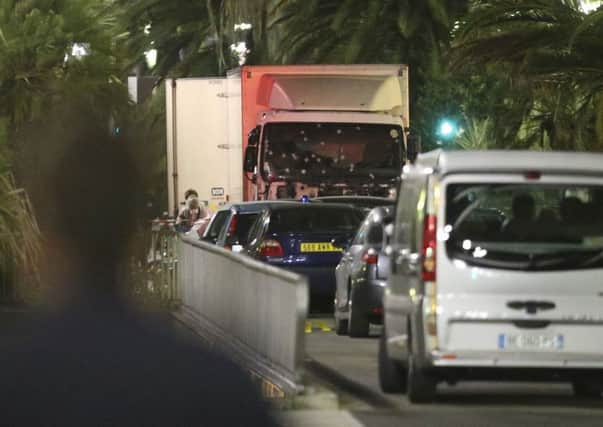We may think events are worse but this is an unusually peacable era


Arguably he is partly wrong on both counts.
It was not the first time that Francis has made such claims. In December 2015 he declared that the Paris attacks three weeks earlier were part of a Third World War. Yet this is dangerous talk which fosters fear and heightens the paranoia plaguing parts of Europe and the US. It provides a green light for politicians like Donald Trump or Marine Le Pen to advocate assaults on basic human rights and advance aggressive foreign policies.
Who is actually fighting this war to which he refers? If he is alluding to state against state conflict, then he is badly mistaken, because this kind of violence has sharply declined in the last 50 years. As Steven Pinker demonstrates in his mammoth study The Better Angels of our Nature (recently issued in paperback), violence generally, whether in warfare, murders, domestic abuse, torture, rape, slavery or cruelty to animals, has been declining over long stretches of time.
Advertisement
Hide AdAdvertisement
Hide Ad

Although constant media exposure to serial killers, Nazi documentaries, ethnic cleansings, Hollywood movies and the like might suggest that we live in a sick world, the truth is that it is relatively peaceful compared to the nastiness in earlier eras. We may think that things are worse, but that is because our sensibilities have become more refined. In short, we may be living in the most peaceable era in our species’ existence.
The contexts of the pope’s recent remarks were the Bastille Day lorry atrocity in Nice and the beheading of Father Jacques Hamel in Saint-Étienne-du-Rouvray. Yet such terrorism is hardly a recent phenomenon, as we in Northern Ireland know only too well. Indeed, more people were killed in the 1970s and 1980s by groups like the IRA, Basque separatists and the PLO than by today’s equivalents. Moreover, most of the people killed by today’s terrorists lived in poor countries, not places like France, Germany, the UK or the US.
As for the other part of the pope’s statement that current conflict is caused by interests, money, resources and domination of peoples, not religion, this is not the whole truth. Religion cannot be so easily exonerated. In much of the violent conflict today there is an ideological or religious dimension, whether it is Muslim against Christian, Muslim against Muslim, or Muslim against Jew.
Northern Ireland has been a society riven by conflicting ideas for which people have been prepared to kill each other over the years. The myth of redemptive violence which was so strong on both sides of the divide had undoubtedly a religious or spiritual dimension. It is no different elsewhere because, as Keynes suggested, the world is ruled by little else other than ideas.
Advertisement
Hide AdAdvertisement
Hide Ad

We have to be careful, therefore, that we do not spread fear and encourage hatred through our use of language. The world is not at war and we should stop using the word as a hold-all term to describe our approach to every problem under the sun whether it is the attempt to overcome poverty, drugs, environmental degradation, or kill our enemies.
Brian McClinton, Humanist Association of Northern Ireland, Lisburn